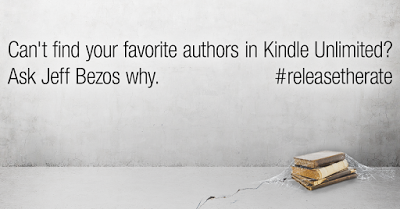By Lisabet Sarai
Last week a writer friend of mine included a wonderful excerpt from his first book in a blog post. I’d read (and loved) this book when it first released; perusing the post felt like meeting up with an old friend.
Then the author casually mentioned, in a post comment, that the book was out of print. I felt like shaking him in frustration. Why in the world, I wanted to scream, did you let that happen? Don’t you care about keeping your work available?
There’s so much in the world of publishing that we authors can’t control: Amazon’s latest tweaks to its ranking algorithms, payment schemes, and censorship policies; publishers being bought out or going bankrupt; out-of-the-blue bestsellers that have readers (and editors) clamoring for cookie-cutter copies. One thing we can control, however, is the disposition of our accumulated body of work. In my opinion, we owe it to ourselves to keep our backlog of books and stories out there in the world, where readers can access them.
Some of you may ask, why bother? Everyone knows it’s only new releases that get any sales (as demonstrated by the thirty-day cliff phenomenon). Who’s going to want to read a book that’s a year, or five years, or ten years old? Anyway, no publisher will be interested in a dingy old reprint. If some of your back list dates from before the ebook revolution, you might not even have the manuscript in digital form.
Examined carefully, none of these arguments (excuses?) holds up to scrutiny.
First of all, though your book may be “old”, there are undoubtedly millions of potential readers who’ve never encountered it. Sure, your fans (whether you have five or fifty thousand) may have read your earlier work, but for lots of readers, your book will be a welcome discovery. If someone picks up an old book of yours and enjoys it, he or she is going to want more. You need to make sure you can give these people what they crave.
Out of the 200 or so people who completed my survey earlier this year (http://lisabetsarai.blogspot.com/2015/08/reader-survey-results-part-2.html), 30% had never read one of my books, and another 25% weren’t sure. That’s over one hundred people for whom everything on my back list will be new and exciting. I want those readers!
Even for readers who know your work well, it’s important to keep your older stuff available. What if they want to reread one of their all-time favorites?
My brother’s birthday was yesterday, so last week I went to Amazon, looking for two books I read—and loved—decades ago: Winter’s Tale by Mark Helprin and Little Big by John Crowley. My copies of both books date from the eighties. They’re falling apart. I was delighted to discover new editions of both titles. I sent them off to my brother, and you know, I just might replace my tattered volumes with new ones.
Make sure that readers who love your work can do that, too.
You may be interested in re-releasing your out-of-print opus, but think publishers won’t want it. Think again. These days, especially, publishers who are trying to satisfy the market’s insatiable desire for fiction are more than willing to look at your back list titles. In fact, they may recognize that they’ll have to invest less time and effort in a previously released book because it will have already been through one or more rounds of editing.
My debut novel Raw Silk has been through three publishers. Ruby’s Rules (now retitled as Nasty Business) has had four, Incognito two, Exposure three. I’ve had publishers go bankrupt and others decide they didn’t want to publish erotica. In a few cases, I’ve reclaimed my rights because I wasn’t happy about my sales or the way the publisher was run. My goal has always been to keep all my novels available—whatever that required.
“But I write short stories”, you may respond. “Nobody wants those.”
Not true. I recently published a 5K tale (a reprint) through an indie publisher who was actively seeking short fiction. You can also self-publish your stories, either individually or as a collection. In fact, since most anthologies ask for only one-time rights, you may be able to publish a short piece in multiple places.
If you really can’t find anyone to publish your tale, you can still make it available free, using it to introduce readers to your published work. That’s better than letting it languish in the dusty recesses of your computer memory!
And what if your book was published so long ago that you don’t have the source in electronic form? As long as you have a physical copy, you can subject it to Optical Character Recognition (OCR), a process that uses image analysis to recognize typescript and turn it into digital text. OCR may produce a significant number of errors, so you will need to carefully review and revise the output. However, this process will allow you to create both ebook and print versions of a book that was previously available only in hard copy form.
Once your older work is available, you should spend time promoting it, at least occasionally. Last Sunday I posted an excerpt from a book published back in 2010. One reader told me in a comment that after reading my blog, she’d gone out and bought herself a copy. Talk about encouragement—I felt totally energized. I immediately added 3K for my current WIP!
In short, there’s no reason why you can’t keep all (or most) of your back list in print and available to readers. The only real barriers are emotional. These days it’s sometimes hard to muster the motivation to do anything related to publishing or marketing. The obstacles seem insurmountable. Don’t allow yourself to become discouraged. There are legions of readers out there, searching for great fiction. Help them find yours!




